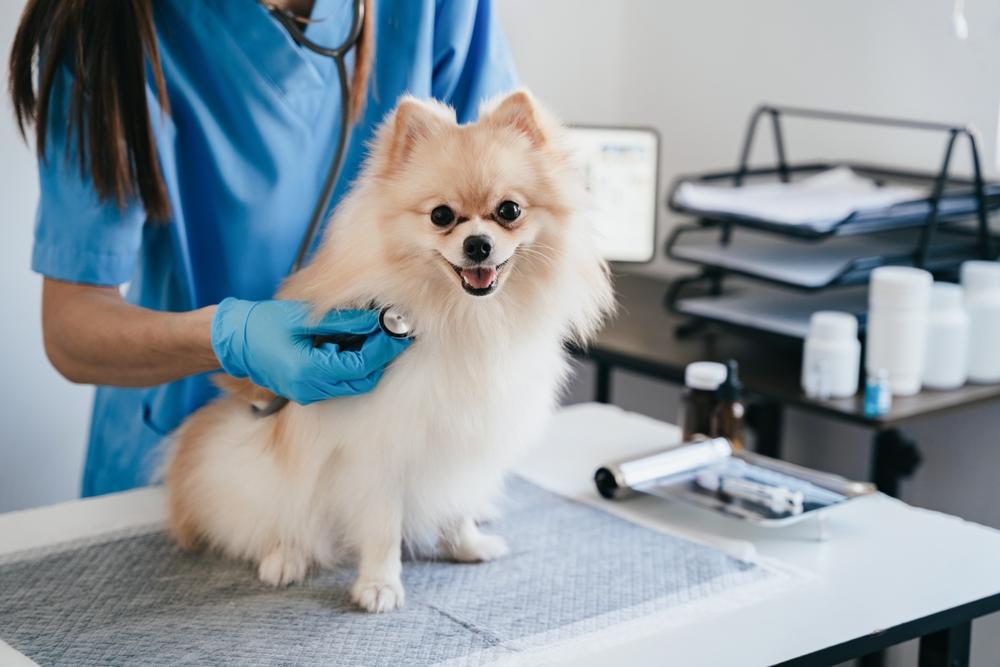Understanding the Urgency of Emergency Care for Pets
When your dog or cat shows signs of distress, your response time can be crucial. Recognizing symptoms that require immediate veterinary attention and knowing how to act can mean the difference between relief and regret. At Memorial Villages Animal Hospital in Houston, Texas, we are committed to your pet’s health, ready to handle emergencies with speed and expertise. Learn more about our commitment.
The Importance of Timely Veterinary Intervention
Prompt diagnosis and treatment are critical in preventing complications or worsening of your pet’s condition, potentially saving their life. Our team is equipped to address emergencies with state-of-the-art technology and expert care, ensuring the best possible outcome for your pet. Delaying treatment can lead to severe consequences, including irreversible damage to organs or even fatality. For instance, untreated respiratory distress can quickly progress to respiratory failure, highlighting the necessity of rapid intervention.
Recognizing the Signs of a Pet Emergency
Certain symptoms warrant an immediate visit to our emergency room. Key signs include:
- Abnormal breathing
- Sudden collapse
- Unresponsiveness
Breathing Difficulties in Pets
Normal respiratory rates vary, but any noticeable increase in effort, noise, or rate may indicate a problem. Breathing issues can stem from various causes such as airway obstruction, heart failure, or lung disease. Immediate veterinary assessment is essential to determine the underlying cause and administer appropriate treatment, which may include oxygen therapy, medication, or emergency surgery. For more on what constitutes abnormal breathing, check out this guide from AAHA.
Gastrointestinal Issues That Need Immediate Attention
Symptoms like vomiting, diarrhea, refusal to eat, and obvious pain are urgent signs that your pet needs veterinary care. These symptoms can quickly lead to dehydration, electrolyte imbalances, and even shock if not addressed. Persistent vomiting could indicate gastrointestinal obstruction or pancreatitis, which require prompt medical attention. Understand more about common breed-related problems.
Neurological Symptoms Indicating Urgent Care
If your pet displays seizures, sudden loss of balance, or unusual head tilting, it’s critical to seek immediate veterinary attention. Neurological issues might indicate serious conditions like epilepsy, traumatic brain injury, or toxin ingestion. These symptoms require urgent diagnostics, such as imaging and lab tests, to initiate suitable treatments. Read more on identifying these emergency signs.
First Response: What to Do Before You Reach the Vet
In an emergency, knowing how to stabilize your pet during transport can prevent further injury. For instance, in cases of bleeding, applying gentle pressure with a clean cloth can slow blood loss. If your pet is having difficulty breathing, ensure their airway is clear and transport them in a calm, quiet manner to minimize stress. For detailed steps on immediate actions, visit our Emergency & Urgent Care page.
How Memorial Villages Animal Hospital Handles Pet Emergencies
Our clinic is equipped to handle emergencies with services like digital imaging and innovative treatments such as regenerative medicine. This allows us to swiftly diagnose conditions with precision and tailor treatments to your pet’s specific needs. Explore our digital imaging services and learn about regenerative medicine.
Our Approach to Emergency Diagnostics and Treatment
We use the latest technology and techniques to perform comprehensive physical exams, ensuring accurate diagnosis and effective treatment during emergencies. Our approach includes a thorough assessment of the pet’s history, physical condition, and laboratory results to develop a comprehensive treatment plan. We focus on stabilizing the pet’s condition, managing pain, and addressing the root cause of the emergency.
Preventative Measures to Avoid Pet Emergencies
Keeping your pet safe involves:
- Regular vet visits: Routine check-ups can detect health issues before they escalate.
- Avoiding known hazards: Keep harmful substances, like chocolate and antifreeze, out of reach.
- Keeping up with essential vaccinations: Protects against preventable diseases.
Discover tips to keep your pet safe this summer, and learn about essential vaccines for your new kitten.
The Role of Regular Vet Visits in Preventing Emergencies
Routine check-ups help catch issues before they escalate into emergencies. During these visits, veterinarians can identify early signs of chronic diseases, administer preventive treatments, and provide guidance on nutrition and lifestyle adjustments. Read about the importance of quality veterinary care.

FAQs About Pet Emergencies
Q: What should I do if my pet is having a seizure?
A: Stay calm. Move any objects that might harm your pet, and avoid touching them near the mouth. Time the seizure and contact your vet immediately.
Q: How can I tell if my pet is dehydrated?
A: Check for signs like dry gums, lethargy, and skin elasticity loss. If you suspect dehydration, offer small sips of water and contact your vet.
Contacting Your Vet During an Emergency: What You Need to Know
Knowing how to quickly contact your vet during an emergency is crucial. Have our contact information handy and familiarize yourself with our emergency procedures. View our contact information here.
At Memorial Villages Animal Hospital, we understand the bond you share with your pet and the distress that accompanies emergencies. Our dedicated team in Houston, Texas, is prepared to provide compassionate, competent care when you need it most.









Leave A Comment